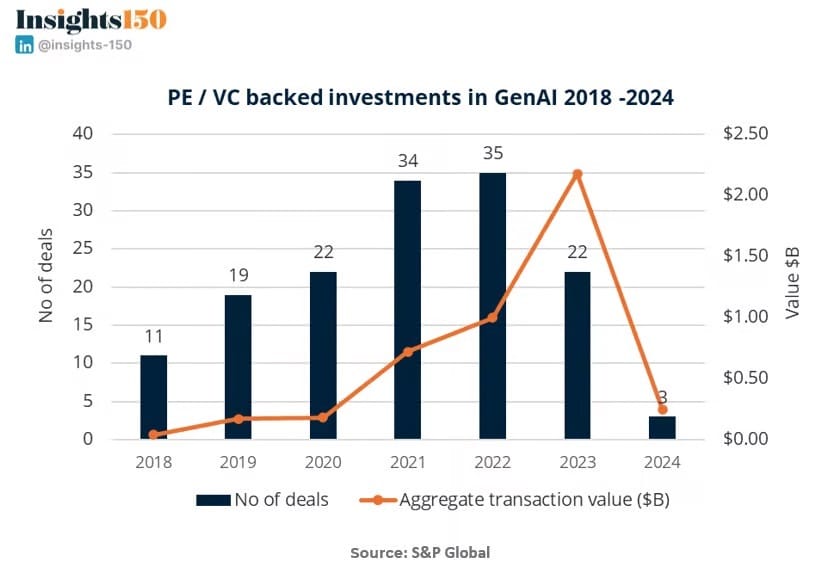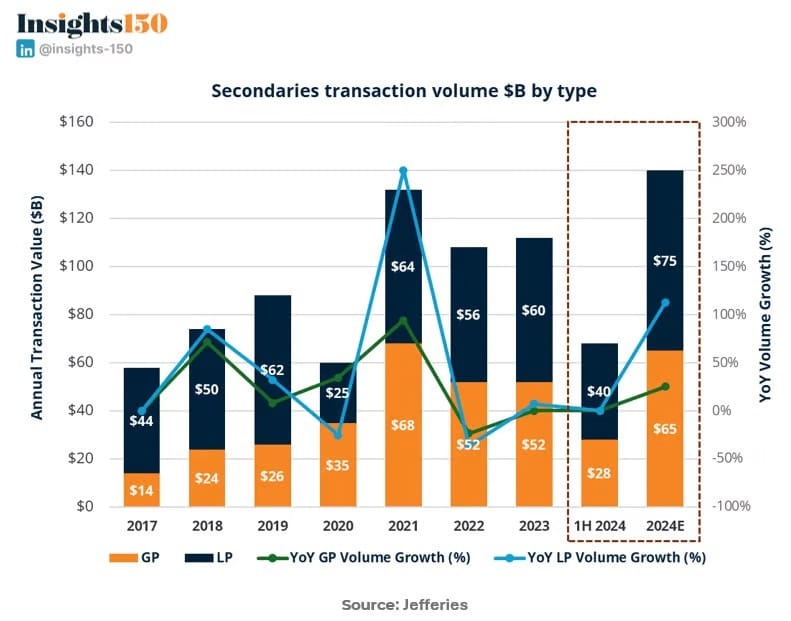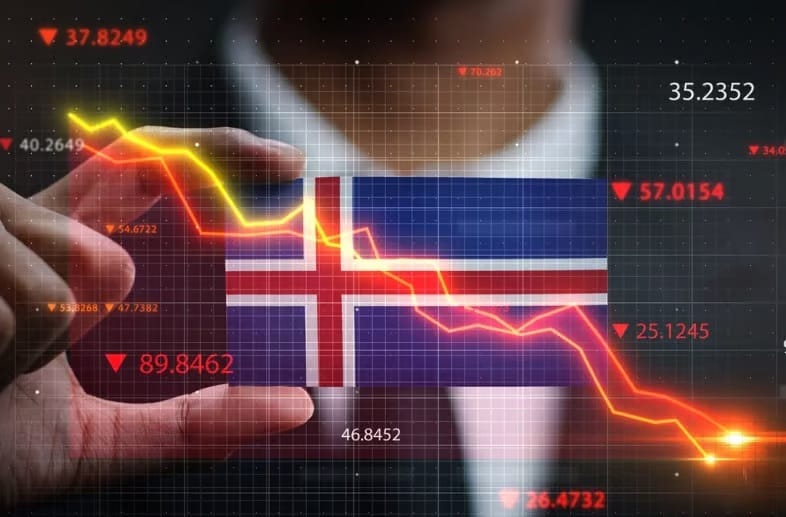- PE 150
- Posts
- Secondaries Trend, PE and Gen AI Growth; Google Goes Nuclear Powered
Secondaries Trend, PE and Gen AI Growth; Google Goes Nuclear Powered
Google shifts to nuclear power, GenAI to revolutionize PE deal sourcing and portfolio management, plus proprietary forum members insights on balancing founders and professional managers in portfolio companies.
Gen AI and Private Equity, Secondaries Trends and Lessons From Iceland's 2008 Financial Crisis
Happy Monday ,
This week we explore how GenAI is impacting PE sponsors within deal sourcing, portfolio optimization, investor relations and more.
GenAI isn't just a tool for efficiency—it's becoming a strategic necessity for growth in the PE space, and we’re seeing rapid adoption as firms scramble to stay competitive.
In other news, Google goes nuclear by a nuclear clean energy deal with Kairos. Next week, watch for our Deep Dive on the Infinite Game of Private Equity which we’re super excited about!
Here’s to navigating another week of disruption and opportunity!
— Gaston Brizuela and Santiago Morazzani Senior PE Analysts
Table of Contents
📚 Data Dive
GenAI And Private Equity

Private equity is evolving with the rise of Generative AI (GenAI), projected to grow from $178 million in 2022 to $1.1 billion by 2032. Already, 61% of PE firms are using GenAI to optimize portfolios, streamline deal sourcing, and enhance investor relations. EY reports adoption as high as 74%, but many firms are just scratching the surface. With capabilities ranging from real-time portfolio monitoring to automating due diligence, GenAI promises to boost operational efficiency and deliver sharper insights.
Want to learn more?
Upgrade To Executive, To Get More Faster
Access our proprietary reports and much more, the week before!
📈 Trend of the week
GPs on Fire: Market Hits Peak Performance
GP-led secondary transactions are flexing hard in 2024. Volume for H1 alone surged 56% year-over-year to $28 billion, the highest mid-year mark since 2021. These deals now represent 41% of all secondary activity. A mix of heavy fundraising, eager new players, and pent-up supply revived the market in late 2023—and momentum is still strong. Over the past year, GP-led volume hit $62 billion, solidifying the model as a staple in PE playbooks. LPs haven’t been slouches either, contributing to a whopping $68 billion total secondary volume in H1 2024, a 58% jump from last year. With tighter bid-ask spreads and stable capital markets, the stage is set for the secondary market to close 2024 with historic numbers.

Know someone who'd love this?
Forward this newsletter to colleagues and friends who want the latest Private Equity trends, insights and a little bit of future-proofing!
Forward this issue🤝 Deal of the Week
Google and Kairos Power Sign Groundbreaking Nuclear Clean Energy Deal

Google has inked the world’s first corporate agreement to purchase nuclear energy from small modular reactors (SMRs) developed by Kairos Power. This partnership aims to bring Kairos Power’s first SMR online by 2030, with additional reactors set for deployment through 2035. The deal will provide up to 500 MW of 24/7 carbon-free energy, supporting Google’s ambitious net-zero goals while addressing the growing energy needs of AI technologies. With a cutting-edge molten-salt cooling system, Kairos' reactors promise safer, more efficient, and scalable nuclear solutions to power U.S. grids cleanly and reliably.
👥 Teaser Insights From Our PE 150 Roundtable

Founder vs. Manager: The Ultimate PE Tug-of-War
With the recent hype around Airbnb’s CEO Brian Chesky going viral discussing ‘Founder Mode’ (originally made famous by YC founder Paul Graham), we hosted a roundtable with three Principals at mid-market PE firms discussing the balance between managing founder/builders vs. professional management executives that are more typically MBA’s. When investing in founder-led businesses, PE firms face the challenge of harnessing entrepreneurial energy while addressing blind spots in management. Bringing in external talent can either bridge gaps or clash with the founder’s vision, especially in middle-market firms.
📊Some insights we learned were:
Corporate CFOs often struggle in founder-led environments; cultural fit is crucial.
Founders’ agility can be invaluable during crises, but professional management is necessary for long-term growth.
Knowing when to shift founders into different roles is key to avoiding emotional conflicts.
Look for the full write up in an upcoming issue, soon!
⌚ This Day in History
October 2008: Lessons from Iceland’s Banking Collapse

In October 2008, Iceland’s financial system imploded as the nation’s largest banks—holding assets more than 10 times the country’s GDP—collapsed under the weight of unchecked growth and insufficient regulation. This unprecedented banking failure sent shockwaves through the global economy and remains a cautionary tale of financial excess. Fast-forward to 2023, and the U.S. regional banking sector seems to be echoing Iceland’s downfall. The rapid expansion of institutions like Silicon Valley Bank, fueled by cheap capital and loose oversight, bears an unsettling resemblance to Iceland’s banking debacle, underscoring the enduring risks of prioritizing short-term gains over financial stability.
Looking to Reach Top Private Equity execs?
Advertise with PE 150 and get your brand in front of the right people.
Become an Advertiser Now🎧 Podcast of the week
Private Equity Deals with Ted Seides
In this episode of "Animal Spirits," Ted Seides, founder of Capital Allocators, joins Michael Batnick and Ben Carlson to dive into Seides’ new book, covering key lessons in investing, dealmaking, and operations drawn from his experience with top private equity professionals. The conversation sheds light on strategies used in successful deals and the critical insights that help shape today's private equity landscape. This is a must-listen for anyone curious about the inner workings of PE and the long-term outlook for this asset class.
🏆 Inspirational History
Breaking Barriers, Building Legacies
Ursula Burns' journey from a summer intern to the CEO of Xerox is nothing short of extraordinary. Starting in 1980, with a mechanical engineering background from NYU and Columbia, Burns shattered ceilings to become the first Black woman to lead a Fortune 500 company. Under her leadership, Xerox generated over $20 billion, but her impact reaches beyond profits. Appointed by President Obama to the President’s Export Council and a board member of industry giants like American Express, Burns embodies values-driven leadership. Her mantra? Success is more than financial results—it's about building lasting, ethical legacies.
📰 Interesting Articles
🐣 Tweet of the week
LPs have flocked to tried-and-true real estate funds, leaving unproven managers in the cold. pitchbook.com/news/reports/h…
— PitchBook (@PitchBook)
11:00 AM • Oct 11, 2024
""Don't watch the clock; do what it does. Keep going""
Sam Levenson



